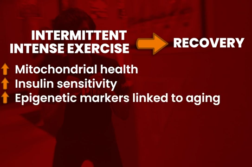PHILADELPHIA, Pa. (Ivanhoe Newswire) — Surgery and chemotherapy have long been the primary treatment options for colorectal cancer. Even then, survival rates can be low, if not detected early. Now, researchers are fighting back with a simple vaccine meant to activate the body’s immune cells and destroy cancer cells. There is hope it might also target other deadly cancers. Colorectal Cancer Vaccine
Judith May, 66, spent years saving others as an EMT but hated to accept help herself after being diagnosed with stage two pancreatic cancer.
May shared, “You do everything yourself and I had to depend on my husband who was my wonderful nurse.”
But even as she fought her disease with traditional surgery and chemo, she had the nagging feeling there had to be some other treatment.
“Anything that would help it, cure it, possibly,” May said.
Jefferson researchers in Philadelphia are hoping for just that. They are in phase 2 clinical trials for a colorectal vaccine that seeks a specific molecule in cancer cells called GUCY2C.
Adam Snook, PhD, Assistant Professor at Sidney Kimmel Cancer Center – Jefferson Health and Jefferson University said, “We can administer a vaccine in the arm, for example and those immune cells will spread out from there and seek out cancer cells in different places like the lung and the liver, where they may have spread to.”
During phase 1 of the study, researchers found GUCY2C in three other cancers: pancreatic, esophageal and stomach, which could mean a later version of the vaccine would fight them, as well. The new study will include about 100 patients, followed over the course of two years. Meanwhile, May stays positive.
May said, “I play golf, we travel and just do whatever we can do. Each day that I wake up it’s a blessing to me.”
This pivotal phase 2 study hones in on targeting specific cancer molecules and destroying them. Researchers know that cancer cells are so similar to normal cells in makeup that it is often difficult to create cancer specific therapies, but they believe it is possible to safely leverage a patient’s own immune system to kill cancer cells.
Contributors to this news report include: Cyndy McGrath, Supervising Producer; Donna Parker, Field Producer; Roque Correa, Videographer and Editor.
To receive a free weekly e-mail on Medical Breakthroughs from Ivanhoe, sign up at: http://www.ivanhoe.com/ftk
MEDICAL BREAKTHROUGHS
RESEARCH SUMMARY
TOPIC: NEW COLORECTAL CANCER VACCINE MAY HELP PANCREATIC PATIENTS TOO
REPORT: MB #4640
PANCREATIC CANCER: More than 56,000 Americans are expected to be diagnosed with pancreatic cancer in 2019. That is more than 150 people diagnosed every day. Pancreatic cancer is the ninth most commonly diagnosed cancer in women and the 10th most commonly diagnosed in men in the U.S. Pancreatic cancer’s exact causes are not well understood. About five to 10 percent of pancreatic cancers are considered familial or hereditary. Most pancreatic cancer happens randomly or is caused by things such as smoking, obesity and age. Pancreatic cancer is hard to find because the pancreas is located deep in the abdomen, so doctors usually cannot see or feel the tumor during a physical exam. Also, pancreatic cancer symptoms are not always obvious and usually develop over time.
(Source: https://www.pancan.org/facing-pancreatic-cancer/about-pancreatic-cancer/what-is-pancreatic-cancer/)
COLORECTAL CANCER: Colorectal cancer is cancer that occurs in the colon or rectum. Sometimes it is called colon cancer, for short. The colon is the large intestine or large bowel. The rectum is the passageway that connects the colon to the anus. Regular screening, beginning at age 50, is the key to preventing colorectal cancer. The U.S. Preventive Services Task Force recommends that adults age 50 to 75 be screened for colorectal cancer. The Task Force recommends that adults age 76 to 85 ask their doctor if they should be screened.
(Source: https://www.cdc.gov/cancer/colorectal/basic_info/what-is-colorectal-cancer.htm)
NEW VACCINE: Adam Snook, PhD, Assistant Professor at Jefferson University talks about the vaccine that may be beneficial to a variety of cancer patients, “The vaccine is administered in the muscle in the arm almost like a flu vaccine would be given. And the vaccine is actually composed of a virus that expresses this tumor antigen that we’re targeting. The virus infects cells and that antigen is made and presented to the immune system to say, here’s something dangerous. Create an immune response to go out and find more cells expressing this protein. And that’s what they’ll do.” Snook has big hopes for the future, “our goal is that for patients with pancreatic cancer or colon cancer, that they receive the standard therapies and instead of hoping that their disease has gone after they’ve received their chemotherapy, that they now know that their immune system is sort of working for those weeks or months or years afterwards to hopefully prevent it from coming back.”
(Source: Adam Snook, PhD)
FOR MORE INFORMATION ON THIS REPORT, PLEASE CONTACT:
Edyta Zielinska, PR
215-955-7359
If this story or any other Ivanhoe story has impacted your life or prompted you or someone you know to seek or change treatments, please let us know by contacting Marjorie Bekaert Thomas at mthomas@ivanhoe.com




